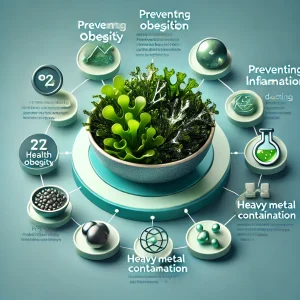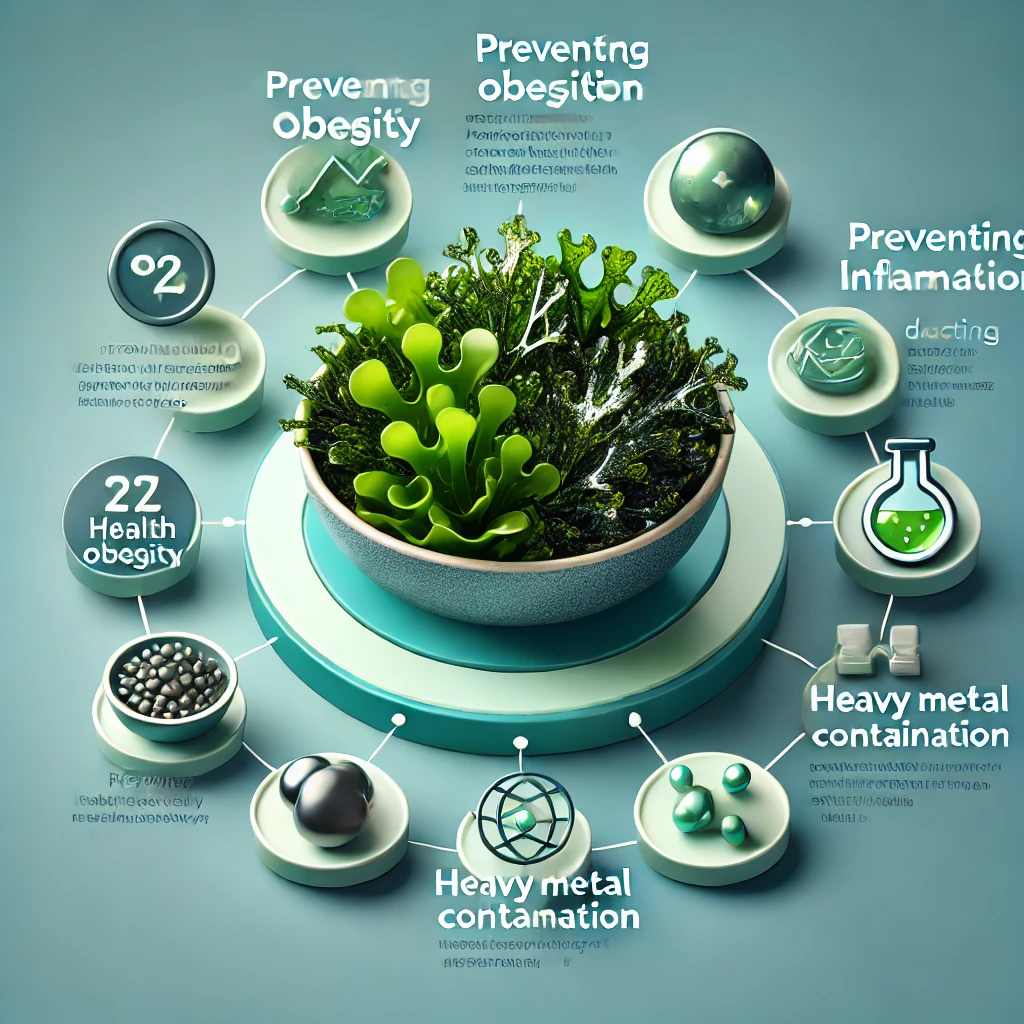
Seaweed, a staple in traditional diets across the globe, is now gaining recognition in the United States. UConn Department of Nutritional Sciences researchers, including Department Head Professor Ji-Young Lee and Assistant Research Professor Young-Ki Park, are researching not only the health benefits of seaweed but also addressing the potential health risks. In this blog, we will delve into the various health benefits and risks associated with seaweed consumption.
Health Benefits of Seaweed Consumption
Seaweed has been a part of traditional diets in many East Asian countries, including Japan, China, and South Korea, for centuries. It is often consumed as a food or used in various food products due to its nutritional value and health benefits. The health benefits of seaweed consumption can be broadly categorized into several areas:
Preventing Obesity and Weight Gain
Seaweed consumption has been shown to prevent obesity and weight gain. In a recent study, researchers found that mice fed a diet high in fat, sugar, and cholesterol, but supplemented with sugar kelp, did not gain weight and were more physically active compared to mice not fed seaweed. This suggests that seaweed can help regulate metabolism and reduce the risk of obesity-related diseases such as fatty liver disease.
Reducing Inflammation and Non-Alcoholic Fatty Liver Disease
Seaweed consumption has been linked to a reduction in inflammation and non-alcoholic fatty liver disease. These conditions are significant health concerns globally, and seaweed’s anti-inflammatory properties may help mitigate their effects. The study found that mice fed a high-fat diet supplemented with sugar kelp showed reduced inflammation and fatty liver disease compared to those not fed seaweed.
Other Health Benefits
Seaweed has been associated with several other health benefits, including:
– **Improved Gut Health**: Seaweed contains prebiotic fibers that support the growth of beneficial gut bacteria, promoting a healthy gut microbiome.
– **Antioxidant Properties**: Seaweed is rich in antioxidants that help protect the body against oxidative stress and inflammation.
– **Support for Cardiovascular Health**: Seaweed’s high fiber content and omega-3 fatty acids can help lower cholesterol levels and reduce the risk of cardiovascular disease.
Potential Risks Associated with Seaweed Consumption
Despite the numerous health benefits, there are some potential risks associated with seaweed consumption that need to be addressed:
Heavy Metal Contamination
Heavy metal contamination is a significant concern for seaweed, as it is for other fish and seafood caught in the ocean. The levels of heavy metals in seaweed can vary depending on where it is grown or harvested. Currently, there are no established regulations for safety, which is crucial for ensuring that seaweed is safe for human consumption.
Standardization and Safety Regulations
To address the potential risks, standardization and safety regulations are necessary for food sources like seaweed. The same seaweed grown in different environments can have different healthy compounds or contaminants, making it essential to establish safety standards. This will help ensure that consumers can safely gain the health benefits of seaweed without the risks.
Future Research and Applications
The research on seaweed is not limited to its health benefits. It has various applications, including:
Environmental Sustainability
Seaweed is an environmentally friendly crop that can help mitigate climate change. It can be used to produce biofuels, capture carbon, and even serve as a sustainable food source.
Food and Pharmaceutical Industries
Seaweed compounds are used as gelling agents or hydrocolloids in various food products and pharmaceuticals. The extraction of these compounds from seaweed can provide a sustainable and eco-friendly alternative to traditional sources.
Consumer Awareness and Education
Educating consumers about the health benefits and potential risks of seaweed consumption is crucial. This will help ensure that people can make informed decisions about incorporating seaweed into their diets. Researchers emphasize the importance of studying the toxicity potential of seaweed and standardizing the product to ensure safety.
Conclusion
Seaweed is a versatile and nutritious food that offers numerous health benefits. However, it is essential to be aware of the potential risks associated with its consumption, particularly heavy metal contamination. Standardization and safety regulations are necessary to ensure that seaweed is safe for human consumption. As research continues to explore the various applications of seaweed, it is likely to become a significant agricultural crop, offering a sustainable and healthy alternative to traditional food sources.
References:
Charlie’s Diary – Antipope.org Phys.org – Sitemap HNlog – GitHub Pages Phys.org – Q&A: Seaweed—Weighing the Many Health Benefits and Potential Risks Phys.org.

